Peanuts, also known as groundnuts, are popular snack choices enjoyed by people all around the world. Whether you prefer them roasted, salted, or as part of your favorite dishes, peanuts are a versatile ingredient that adds flavor and crunch to a variety of recipes. But are peanuts a healthy choice or an indulgent treat to be enjoyed in moderation? Let’s take a closer look at the nutritional benefits and potential drawbacks of peanuts to help answer this question. Nutritional Benefits of Peanuts Peanuts are packed with essential nutrients that are beneficial for overall health. They are an excellent source of plant-based protein, making them a great option for vegetarians and vegans looking to meet their protein needs. Protein is essential for building and repairing tissues, as well as for maintaining a healthy immune system. In addition to protein, peanuts are rich in healthy fats, specifically monounsaturated and polyunsaturated fats.
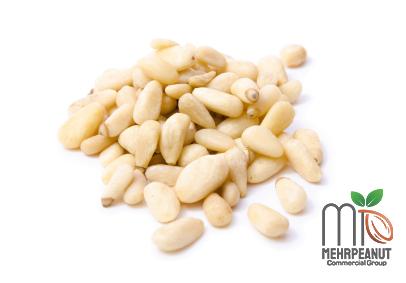
.
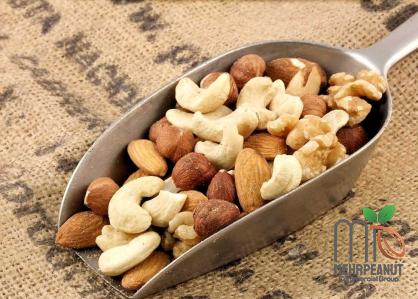 These fats are considered heart-healthy and can help lower LDL cholesterol levels when consumed in moderation. The presence of these healthy fats in peanuts also makes them a good source of energy for the body. Peanuts are also a good source of fiber, which is essential for digestive health. Fiber helps promote regular bowel movements, prevent constipation, and support a healthy gut microbiome. By including peanuts in your diet, you can increase your fiber intake and support overall digestive wellness. Furthermore, peanuts are rich in essential vitamins and minerals, including vitamin E, niacin, folate, and magnesium. Vitamin E is a powerful antioxidant that helps protect cells from damage caused by free radicals, while niacin plays a key role in energy production and DNA repair. Folate is important for normal cell division and growth, especially during pregnancy, and magnesium is essential for muscle and nerve function. Peanuts also contain other beneficial compounds, such as resveratrol and phytosterols, which have antioxidant and anti-inflammatory properties. These compounds may help reduce the risk of chronic diseases, such as heart disease and cancer, and support overall health and well-being. Potential Drawbacks of Peanuts While peanuts offer a wide range of health benefits, there are some potential drawbacks to consider. One of the main concerns related to peanuts is their high calorie content. Just a small serving of peanuts can be high in calories due to their fat content, which can contribute to weight gain if consumed in excess. In addition, peanuts are a common allergen, and some people may experience allergic reactions when consuming peanuts or products containing peanuts. Peanut allergies can range from mild symptoms, such as itching and hives, to severe, life-threatening reactions, such as anaphylaxis. It is essential for individuals with peanut allergies to avoid peanuts and products containing peanuts to prevent allergic reactions. Another consideration when it comes to peanuts is their potential aflatoxin contamination. Aflatoxins are naturally occurring toxins produced by certain molds that can grow on peanuts and other crops.
These fats are considered heart-healthy and can help lower LDL cholesterol levels when consumed in moderation. The presence of these healthy fats in peanuts also makes them a good source of energy for the body. Peanuts are also a good source of fiber, which is essential for digestive health. Fiber helps promote regular bowel movements, prevent constipation, and support a healthy gut microbiome. By including peanuts in your diet, you can increase your fiber intake and support overall digestive wellness. Furthermore, peanuts are rich in essential vitamins and minerals, including vitamin E, niacin, folate, and magnesium. Vitamin E is a powerful antioxidant that helps protect cells from damage caused by free radicals, while niacin plays a key role in energy production and DNA repair. Folate is important for normal cell division and growth, especially during pregnancy, and magnesium is essential for muscle and nerve function. Peanuts also contain other beneficial compounds, such as resveratrol and phytosterols, which have antioxidant and anti-inflammatory properties. These compounds may help reduce the risk of chronic diseases, such as heart disease and cancer, and support overall health and well-being. Potential Drawbacks of Peanuts While peanuts offer a wide range of health benefits, there are some potential drawbacks to consider. One of the main concerns related to peanuts is their high calorie content. Just a small serving of peanuts can be high in calories due to their fat content, which can contribute to weight gain if consumed in excess. In addition, peanuts are a common allergen, and some people may experience allergic reactions when consuming peanuts or products containing peanuts. Peanut allergies can range from mild symptoms, such as itching and hives, to severe, life-threatening reactions, such as anaphylaxis. It is essential for individuals with peanut allergies to avoid peanuts and products containing peanuts to prevent allergic reactions. Another consideration when it comes to peanuts is their potential aflatoxin contamination. Aflatoxins are naturally occurring toxins produced by certain molds that can grow on peanuts and other crops.
..
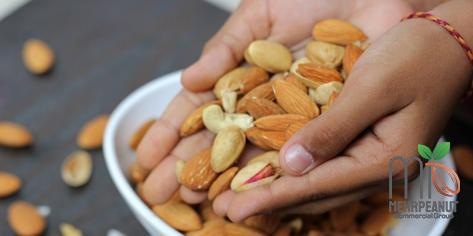 Consuming aflatoxin-contaminated peanuts over a long period can have harmful effects on health, including an increased risk of liver cancer. To reduce the risk of aflatoxin exposure, it is important to store peanuts properly and purchase them from reputable sources. Finally, some peanut products, such as peanut butter and flavored peanuts, may contain added sugars, salt, and unhealthy fats that can diminish their nutritional value. It is important to read labels carefully and choose peanut products that are minimally processed and free from additives to reap the full health benefits of peanuts. In Conclusion In conclusion, peanuts can be a nutritious snack choice when consumed in moderation as part of a balanced diet. They are a good source of plant-based protein, healthy fats, fiber, vitamins, minerals, and beneficial compounds that support overall health and well-being. However, it is essential to be mindful of portion sizes, potential allergens, aflatoxin contamination, and added ingredients when including peanuts in your diet. By selecting high-quality peanuts and peanut products and enjoying them in moderation, you can reap the many nutritional benefits that peanuts have to offer. Whether you snack on a handful of roasted peanuts, add peanut butter to your morning smoothie, or incorporate peanuts into your favorite dishes, there are plenty of delicious ways to enjoy peanuts as part of a healthy lifestyle. So go ahead and savor the flavor and crunch of peanuts while reaping their valuable health benefits. As you explore the world of peanuts, you’ll find that there are countless ways to incorporate this versatile ingredient into your daily diet. From savory dishes to sweet treats, peanuts can add a delicious flavor and satisfying crunch to a wide range of recipes. Here are some creative and nutritious ways to enjoy peanuts: 1. Peanut Butter and Banana Smoothie: Blend together a ripe banana, a spoonful of peanut butter, a splash of almond milk, and a handful of ice cubes for a creamy and satisfying smoothie that makes a perfect breakfast or snack.
Consuming aflatoxin-contaminated peanuts over a long period can have harmful effects on health, including an increased risk of liver cancer. To reduce the risk of aflatoxin exposure, it is important to store peanuts properly and purchase them from reputable sources. Finally, some peanut products, such as peanut butter and flavored peanuts, may contain added sugars, salt, and unhealthy fats that can diminish their nutritional value. It is important to read labels carefully and choose peanut products that are minimally processed and free from additives to reap the full health benefits of peanuts. In Conclusion In conclusion, peanuts can be a nutritious snack choice when consumed in moderation as part of a balanced diet. They are a good source of plant-based protein, healthy fats, fiber, vitamins, minerals, and beneficial compounds that support overall health and well-being. However, it is essential to be mindful of portion sizes, potential allergens, aflatoxin contamination, and added ingredients when including peanuts in your diet. By selecting high-quality peanuts and peanut products and enjoying them in moderation, you can reap the many nutritional benefits that peanuts have to offer. Whether you snack on a handful of roasted peanuts, add peanut butter to your morning smoothie, or incorporate peanuts into your favorite dishes, there are plenty of delicious ways to enjoy peanuts as part of a healthy lifestyle. So go ahead and savor the flavor and crunch of peanuts while reaping their valuable health benefits. As you explore the world of peanuts, you’ll find that there are countless ways to incorporate this versatile ingredient into your daily diet. From savory dishes to sweet treats, peanuts can add a delicious flavor and satisfying crunch to a wide range of recipes. Here are some creative and nutritious ways to enjoy peanuts: 1. Peanut Butter and Banana Smoothie: Blend together a ripe banana, a spoonful of peanut butter, a splash of almond milk, and a handful of ice cubes for a creamy and satisfying smoothie that makes a perfect breakfast or snack.
…
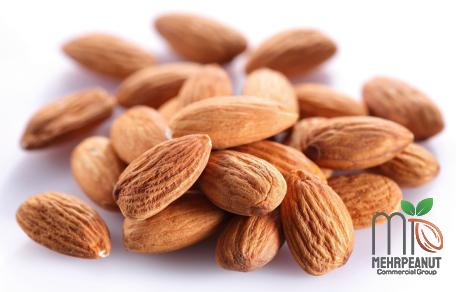 2. Thai Peanut Noodles: Toss cooked noodles with a flavorful sauce made from peanut butter, soy sauce, lime juice, honey, and sriracha. Add in some veggies, such as bell peppers, carrots, and snap peas, for a delicious and colorful meal. 3. Peanut Crusted Chicken: Coat chicken breasts with a mixture of crushed peanuts, breadcrumbs, and seasonings, then bake until golden and crispy. Serve with a side of roasted vegetables for a protein-packed and satisfying dinner. 4. Peanut Energy Balls: Combine peanut butter, oats, chia seeds, honey, and a sprinkle of dark chocolate chips to create energy-boosting snack balls that are perfect for on-the-go fuel. 5. Peanut Kale Salad: Toss together fresh kale, chopped peanuts, dried cranberries, crumbled feta cheese, and a zesty vinaigrette dressing for a nutrient-dense and flavorful salad that’s both nutritious and delicious. Remember to choose high-quality peanuts and peanut products that are free from added sugars, salt, and unhealthy fats to maximize the health benefits of peanuts. Opt for organic or locally sourced peanuts whenever possible to support sustainable farming practices and reduce exposure to pesticides and other harmful additives. Whether you enjoy peanuts as a snack on their own, as a topping for salads and oatmeal, or as an ingredient in your favorite recipes, there are endless ways to incorporate this nutritious nut into your daily routine. By being mindful of portion sizes, allergens, aflatoxin contamination, and added ingredients, you can confidently enjoy the many health benefits that peanuts have to offer. So the next time you reach for a handful of peanuts or a jar of peanut butter, know that you are choosing a nutritious and delicious option that can support your overall health and well-being. With their protein, healthy fats, fiber, vitamins, and minerals, peanuts are a smart choice for anyone looking to fuel their body with essential nutrients and enjoy the irresistible taste of this beloved nut. Make peanuts a satisfying and nourishing part of your diet, and experience the many benefits that this humble nut has to offer. Embrace the versatility and flavor of peanuts in your meals and snacks, and take pleasure in knowing that you are nourishing your body with a wholesome and nutrient-dense food that can be enjoyed in a variety of ways.
2. Thai Peanut Noodles: Toss cooked noodles with a flavorful sauce made from peanut butter, soy sauce, lime juice, honey, and sriracha. Add in some veggies, such as bell peppers, carrots, and snap peas, for a delicious and colorful meal. 3. Peanut Crusted Chicken: Coat chicken breasts with a mixture of crushed peanuts, breadcrumbs, and seasonings, then bake until golden and crispy. Serve with a side of roasted vegetables for a protein-packed and satisfying dinner. 4. Peanut Energy Balls: Combine peanut butter, oats, chia seeds, honey, and a sprinkle of dark chocolate chips to create energy-boosting snack balls that are perfect for on-the-go fuel. 5. Peanut Kale Salad: Toss together fresh kale, chopped peanuts, dried cranberries, crumbled feta cheese, and a zesty vinaigrette dressing for a nutrient-dense and flavorful salad that’s both nutritious and delicious. Remember to choose high-quality peanuts and peanut products that are free from added sugars, salt, and unhealthy fats to maximize the health benefits of peanuts. Opt for organic or locally sourced peanuts whenever possible to support sustainable farming practices and reduce exposure to pesticides and other harmful additives. Whether you enjoy peanuts as a snack on their own, as a topping for salads and oatmeal, or as an ingredient in your favorite recipes, there are endless ways to incorporate this nutritious nut into your daily routine. By being mindful of portion sizes, allergens, aflatoxin contamination, and added ingredients, you can confidently enjoy the many health benefits that peanuts have to offer. So the next time you reach for a handful of peanuts or a jar of peanut butter, know that you are choosing a nutritious and delicious option that can support your overall health and well-being. With their protein, healthy fats, fiber, vitamins, and minerals, peanuts are a smart choice for anyone looking to fuel their body with essential nutrients and enjoy the irresistible taste of this beloved nut. Make peanuts a satisfying and nourishing part of your diet, and experience the many benefits that this humble nut has to offer. Embrace the versatility and flavor of peanuts in your meals and snacks, and take pleasure in knowing that you are nourishing your body with a wholesome and nutrient-dense food that can be enjoyed in a variety of ways.
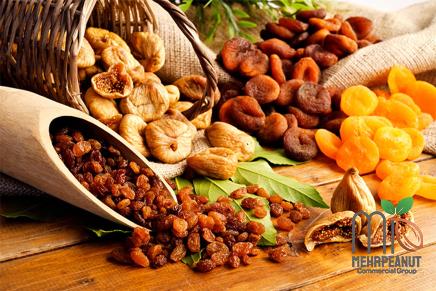
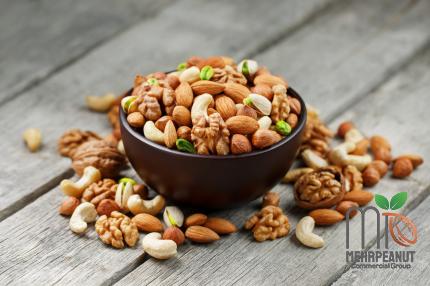
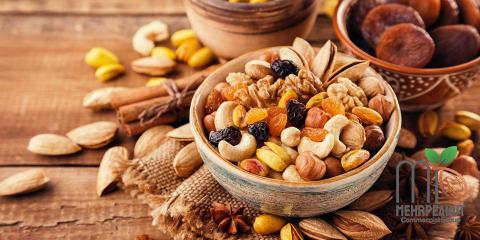
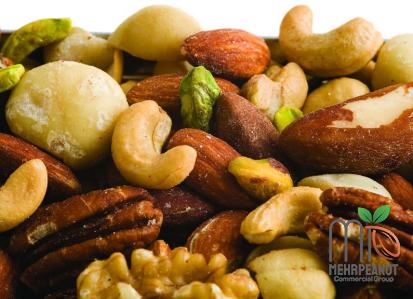
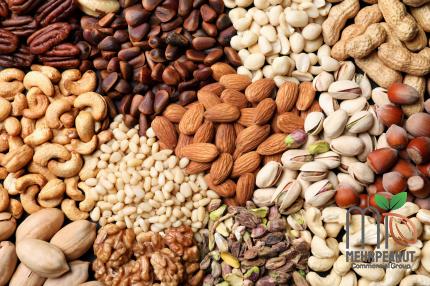
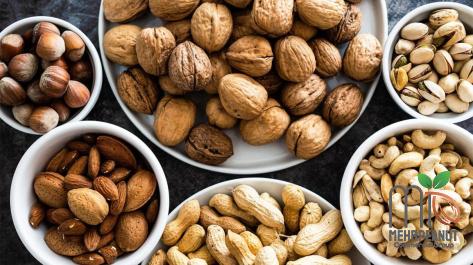
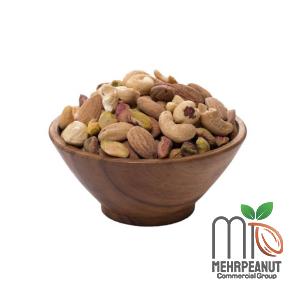
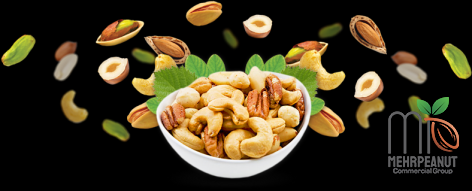

Your comment submitted.